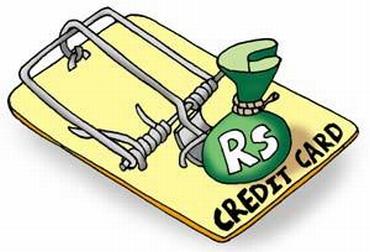
Does the balance transfer facility on credit cards benefit you? If so, how? What should you do to avail such a facility and what does it cost you to do that? Aditya Prasad explains the finer points of availing balance transfers on credit cards.
What does balance transfer mean?
Balance transfer is a facility offered to credit cardholders which enables them to transfer their current outstanding debt, or debt of one credit card to another with a larger credit line.
Some banks offer them for even zero interest rates, but do not be fooled. Typically this is a 'grace period' which lasts about 3 to 6 months at the most, and then they will start charging you their nominal rates!
This however, remains a good financial tool, as you would stand to benefit because it would still cost less than extending your credit line on the same card. Also, if you are dissatisfied with your current bank, this is a convenient way to switch!
This is also useful when you are unable to service a loan. The credit transfer facility ensures you have that extra time to assemble the cash you need to pay your credit card debts.
The author is chief evangelist, Perfios.com

How does it work?
When you decide to use the balance transfer facility, remember 80 per cent is the maximum balance transfer amount.
The credit limit on your other card begins to reduce once you use the balance transfer limit. As a first step, you have to inform the credit card issuer from whom you would avail the balance transfer facility. Fill out the balance transfer form, attach your bill statement and details of your old credit card.
After you submit it, you will receive a demand draft via post. After you submit this to the old credit card issuer, your outstanding with the old credit card company gets cleared. Now you have to pay the transferred amount to the new credit card issuer.

Does it really work?
We know banks keep egging you on to try out different schemes for credit cards, but the balance transfer system could actually prove to be an advantage!
You should know that the interest rates offered by these banks are for introductory period only (say 3 to 6 months) and once it is over, they start charging normal rates. The rate of interest that you pay for outstanding credit dues will always be higher than the balance transfer interest rate, which is something you could definitely stand to benefit from.

How do you pick the best options?
Finding the right balance transfer credit card requires some research and patience.
You will have to list out all the options available in the market so that you can easily compare them. Interest rates, fees and credit limits are just a few of the things you can categorise your choices.
This will help you see which offer would be worth looking into. Go online and explore different Web sites that can help you in comparing various card options and interest rates without spending a lot of time.

Watch out!
The entire balance transfer process takes at least 7 to 10 working days so you need to make sure you don't miss your credit card payments.
If you miss the date of payment, it's more than likely you will default. Use free money manager tools available online to keep track of your credit card bills, expenses and balances and keep paying the minimum due amount on your bill till you receive the demand draft.